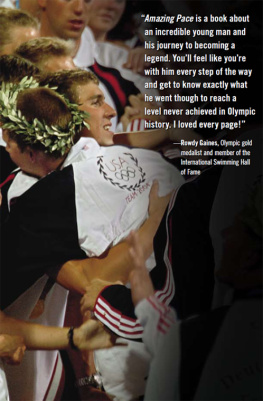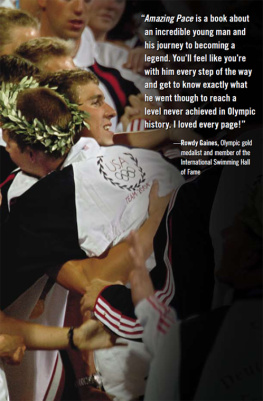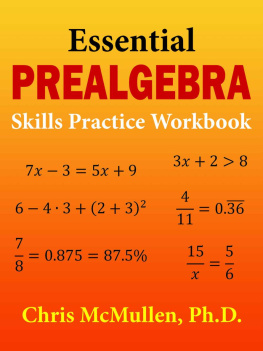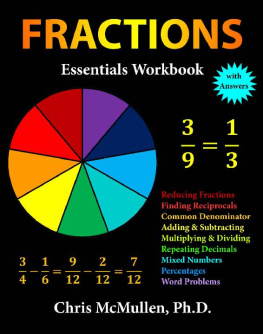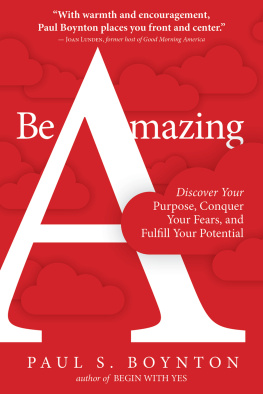Paul McMullen - Amazing Pace
Here you can read online Paul McMullen - Amazing Pace full text of the book (entire story) in english for free. Download pdf and epub, get meaning, cover and reviews about this ebook. year: 2006, publisher: Rodale, genre: Detective and thriller. Description of the work, (preface) as well as reviews are available. Best literature library LitArk.com created for fans of good reading and offers a wide selection of genres:
Romance novel
Science fiction
Adventure
Detective
Science
History
Home and family
Prose
Art
Politics
Computer
Non-fiction
Religion
Business
Children
Humor
Choose a favorite category and find really read worthwhile books. Enjoy immersion in the world of imagination, feel the emotions of the characters or learn something new for yourself, make an fascinating discovery.
- Book:Amazing Pace
- Author:
- Publisher:Rodale
- Genre:
- Year:2006
- Rating:5 / 5
- Favourites:Add to favourites
- Your mark:
- 100
- 1
- 2
- 3
- 4
- 5
Amazing Pace: summary, description and annotation
We offer to read an annotation, description, summary or preface (depends on what the author of the book "Amazing Pace" wrote himself). If you haven't found the necessary information about the book — write in the comments, we will try to find it.
Amazing Pace — read online for free the complete book (whole text) full work
Below is the text of the book, divided by pages. System saving the place of the last page read, allows you to conveniently read the book "Amazing Pace" online for free, without having to search again every time where you left off. Put a bookmark, and you can go to the page where you finished reading at any time.
Font size:
Interval:
Bookmark:


Amazing Pace is a book about an incredible young man and his journey to becoming a legend. Youll feel like youre with him every step of the way and get to know exactly what he went though to reach a level never achieved in Olympic history. I loved every page!
Rowdy Gaines, Olympic gold medalist and member of the International Swimming Hall of Fame.
To Wendy, Kate, and Don
My own world-class kids
I first interviewed Michael Phelps in June 2000, when he was an awkward but self-assured boy of 14 who had never been overseas. Three months later, the swimmer became Americas youngest male Olympian in 52 years, then nearly won a medal at the Games in Sydney, Australia. As a reporter for The Baltimore Sun, I covered Michael in Sydney and then around the world over the 13-month buildup to the 2004 Olympics. Amazing Pace follows that road to Athens, Greece, exploring the institutions, issues, people, and times that shaped an athlete who was still a teen when he placed his name in the Olympic pantheon.
In Athens, Michael gained distinction among the nearly 120,000 men and women who have competed in the modern Olympics, as he became the first to win eight medals in a Games that were not devalued by a boycott. Most applauded his ambition and courage, but at one point in Athens, Michael was seen by some as a failure for not clearing the outrageously high bar that he had willingly set for himself. After 3 days of competition, with five events to go, his total included two bronze medals, which meant that he had no chance to match the record seven golds that American swimmer Mark Spitz had won in 1972. The world press moved on to other athletes and sports, just as Michaels story was about to become even more intriguing.
En route to bettering Spitzs medal total, Michael became the first male Olympic swimmer to medal in five individual events. The last of those came in a remarkable come-from-behind victory over world record holder Ian Crocker and granted Michael the right to represent the United States in the climactic event of Olympic swimming, the mens medley relay. His ambition and single-mindedness had been construed as selfishness, but Michael, amid a jumble of jubilation, relief, and vindication, set aside his own interests and considered the welfare of Crocker, the vanquished American teammate who had been his primary source of inspiration. Michael, who had found success and even solace in the water, stepped aside and let Crocker take his place in the medley relay, the Olympic final he had talked about the most.
Michael earned six gold medals in Athens. Three men and one woman have each won nine gold medals in the history of the worlds largest and most enduring sports event. At the 2008 Olympics, he intends to establish a new mark for gold medals in a career. Michael has motivated men around the world, who will try to gain their own acclaim by beating the most versatile swimmer ever.
In the aftermath of the 2004 Olympics, an injury threatened Michaels livelihood, and bad judgment brought him embarrassment. What lessons does he carry from those experiences? Will Michael, now a student at the University of Michigan and living on his own, be able to regain his focus and continue to make the sacrifices that he did between the Sydney and Athens Olympics? After nearly a decade of wear and tear under the same demanding coach, will Michaels body, as well as his spirit, hold up against the fatigue that will crop up on those cold, dark Ann Arbor mornings?
Michael will be just 23 years old when the 2008 Olympics are held in Beijing, China. His journey, his Amazing Pace, figures to remain as compelling as his achievements and that destination.
PAUL MCMULLEN
JANUARY 2006
CH:13 Once Is Not Enough
SYDNEY, SEPTEMBER 2000
Is he the next Tom Malchow, the next Tom Dolan, or the next Mark Spitz?
That was the pertinent question on the night of September 19, 2000, after Michael Phelps finished fifth in swimmings 200-meter butterfly at the Sydney Olympics. Tardy for his sophomore year at a suburban Baltimore high school, Michael missed medaling in the worlds biggest sporting event by less than four-tenths of a second. He was still only 15 years old, Americas youngest male Olympian in two generations and its youngest swimmer at the Games since the Great Depression. All arms and ears, he shuffled onto the deck with a gawky gait. At the start of the race, he seemed out of his league against older, stronger men, but his still-developing body settled into the proper rhythm of the butterflys windmill stroke and remained steady. He maintained his pace while the competition slowed, and covered the last 50 faster than anyone else in the Olympic final.
That youth and potential led to skys-the-limit speculation about his future, and comparisons to some of his American predecessors. Malchow, a graduate of the University of Michigan, won the 200 butterfly in Sydney. He was the world record holder and had been inspired by the work ethic of Dolan, another Michigan man who stamped himself as the best all-around swimmer of his generation with a repeat victory in the 400 individual medley. Spitz, of course, held the standard not just for swimmers but for all Olympians. No man or woman had come close to duplicating the seven gold medals he had won in as many events at Munich in 1972.
After Malchow discussed his performance in a spacious pressroom to print and electronic reporters from around the world, Michael was ushered into a smaller interview room at the Sydney International Aquatic Center. He wore the same dog-eared Michigan baseball cap that had been on his head for much of the year, and it was clear that the Wolverines program was the early front-runner in what figured to be the most fevered recruiting fight ever for an American swimmer. Asked if he was a Michigan fan, the boy nodded yes. He said that he had just had a dream come true, but that there was much work to do, particularly on his starts and turns.
Michael did not revel for long. The next morning, he was back at the Olympic pool, training. Bob Bowman, the coach who mapped Michaels progress with assurance and precision, handed him a piece of paper that described the details of the workout. The margin included the note Austin WR. His next major meet was the 2001 Spring Nationals at the University of Texas in Austin, and it wasnt too soon to begin mounting an assault on Malchows world record.
Bowman wasnt on the U.S. coaching staff, and he relied on others to supervise Michael at the Olympic Village. The coach didnt have quarters or dining privileges there, let alone a per diem, and when a newspaper reporter from Michaels hometown invited Bowman to dinner, he jumped at the offer. At the end of a long day, one that began with that purposeful morning practice, Bowman took the train from the Olympic Park to central Sydney and walked a few blocks to a hotel on the outskirts of Chinatown. Its always deadline for someone at the Olympics, and the Caf Nine at Arons, a media hotel, never closed during the Games. Bowmans work in Sydney was done, and there was no rush after he finished his steak and mashed potatoes. Another round of beers was ordered.
The discussion ranged from the rabid Australian swim fans to that ragged Michigan cap on Michaels head and his long-range plans. The teen was scheduled to graduate from high school in 2003, so his freshman year of college would coincide with the buildup to the Athens Olympics. Bowmans demanding boss back at the North Baltimore Aquatic Club would surely contend that a hard college season and the distractions of campus life were not the way to prepare for Greece, where Michael would be expected to do more than just make a final. Assorted scenarios crystallized into an epiphany and a few pointed questions for Bowman.
Font size:
Interval:
Bookmark:
Similar books «Amazing Pace»
Look at similar books to Amazing Pace. We have selected literature similar in name and meaning in the hope of providing readers with more options to find new, interesting, not yet read works.
Discussion, reviews of the book Amazing Pace and just readers' own opinions. Leave your comments, write what you think about the work, its meaning or the main characters. Specify what exactly you liked and what you didn't like, and why you think so.

